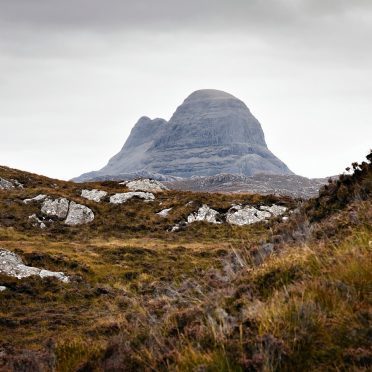Contractors are being sought to repair a path on a landmark Sutherland mountain.
Legendary mountaineer Sir Chris Bonington, 81, added his support to a fundraising campaign for the work on Suilven, describing the walk as “total magic”.
He first climbed Suilven when he was still at school in 1952 and since then traversed the mountain four times.
Mr Bonington has trekked all over the world, including several ascents of Everest, but he counts his walks on Suilven among his most memorable.
He said: “The most magical walk I have ever known was on Suilven in 1952. I was still at school and I was climbing with a young undergraduate. We walked in from Lochinver, dumped our rucksacks at the foot of the west buttress, started up the only route, and quickly lost it to make one of our own to the top. I will never forget that view looking over Loch Sionascaig.
“We then returned to our sacks, headed south on the east side of the loch, all the way, pathless, to the eastern end of Stac Pollaidh. There we found a bothy at about 3am, grabbed a few hours sleep and then climbed Stac Pollaidh – total magic which I shall never forget.”
Suilven lies on community-owned land managed by the Assynt Foundation. With its distinctive geography and spectacular location, the mountain attracts visitors from all over the UK and beyond.
But due to increasing popularity, fragile soils and a harsh climate, the most popular approach to Suilven, beginning at Glencanisp, is rapidly deteriorating.
The project was successful in a Europe-wide online poll worth £18,000 towards the restoration of the path and the John Muir Trust launched a wider public appeal to raise the rest of the money required.
The trust yesterday published details on the Public Contracts Scotland website about the work to be carried out and is seeking interest from companies which could carry it out.
A section of path just under one mile long leading to Suilven across undulating moorland with rocky outcrops is to be restored
The work is to be carried out “in a natural and rugged style” in two stages next year and in 2018.
The project will prevent further damage and maintain public access, helping support tourism in the local community. It also aims to protect the rare habitat of peat bog and wet heath and the plant species and wildlife it supports.
The work is expected to cost in the region of £200,000.
